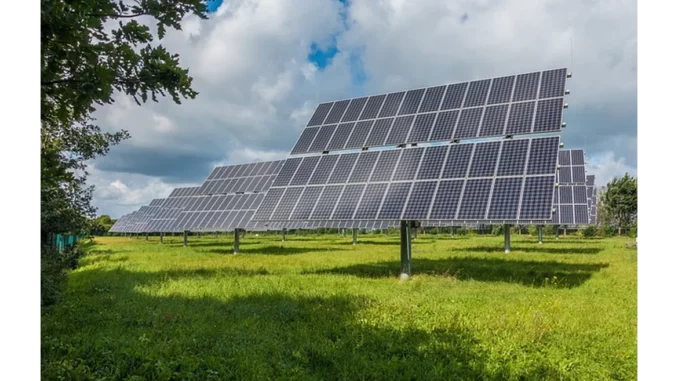
In a recent interview with Sarah Whitfield, an esteemed energy analyst at ICIS, a compelling discussion emerged regarding the significant advancements in solar power generation across Great Britain this summer. Despite the relatively cloudy weather, the nation is poised to surpass previous records in solar energy production, marking a milestone in the renewable energy sector.
Discover how Focus360 Energy aids sustainable development with Sustainability Statements.
Sarah began by outlining the recent developments in Great Britain’s solar power landscape. “It’s an exhilarating period for renewable energy in the UK,” she remarked with palpable enthusiasm. “Our projections indicate that solar power output from June to August will exceed the peak recorded in 2022. We anticipate a potential increase of 16% over last summer’s record.”
This notable surge in solar power generation is part of a broader governmental initiative aimed at tripling the UK’s solar energy capacity by the decade’s end. The Labour government’s commitment to renewable energy was further underscored by the approval of three major solar farms in the east of England. These projects had previously faced opposition from Tory ministers due to local resistance. Upon completion, these solar farms are expected to make substantial contributions to the nation’s growing solar power capacity.
“One of the most intriguing aspects of this growth,” Sarah elucidated, “is that it is occurring despite the relatively unfavourable weather conditions we’ve experienced this summer. There’s a common misconception that solar panels require direct sunlight to function efficiently. However, photovoltaic cells in solar panels are capable of generating significant energy even on cloudy days. In fact, they’re less efficient when they become too hot.”
Sarah’s insights illuminated the resilience and adaptability of solar technology. She further elaborated that solar power generation during the meteorological summer is projected to reach 5.86 terawatt hours by the end of August. This figure is particularly impressive considering that monthly output surpassed 2TWh for the first time in June.
The conversation then turned to the newly approved solar farms: Gate Burton in Lincolnshire, Mallard Pass on the border between Lincolnshire and Rutland, and Sunnica’s energy farm on the Suffolk-Cambridgeshire border. Sarah emphasised the significance of these developments. “These projects are essential. They will provide the equivalent of two-thirds of the solar power capacity installed on rooftops and on the ground throughout last year. This level of growth is crucial if we are to meet the government’s ambitious targets.”
As the discussion progressed to the government’s “rooftop revolution,” Sarah highlighted Keir Starmer’s pledge to equip millions more homes with solar panels. This strategic move aims to reduce domestic energy bills and align with the manifesto commitment to establishing the UK as a clean energy superpower. “This is a progressive initiative,” she noted. “It not only aids in reducing carbon emissions but also makes energy more affordable for the average household.”
Nevertheless, the journey towards tripling the UK’s solar power capacity by 2030 is not without its challenges. Local opposition to major developments in rural areas, which often include large substations, pylons, and overhead power lines, remains a significant obstacle. Sarah acknowledged these concerns but maintained a sense of optimism. “Community engagement and addressing local apprehensions are vital. It’s about balancing progress with the preservation of local interests.”
Towards the end of our conversation, Sarah reflected on the broader implications of this solar power surge. She mentioned the forthcoming decision on the Cottam site, which has the potential to become Britain’s largest solar farm, spanning an area eight times the size of Hyde Park in central London. “If approved, this project will be transformative. It will further cement the UK’s position as a leader in renewable energy.”
Sarah also echoed the sentiments of Chris Hewett, the chief executive of Solar Energy UK, who described the summer record as a testament to the UK’s expanding solar generation capacity. “With the government’s support and the public’s growing awareness of the benefits of renewable energy, we are witnessing an extraordinary pace of growth in solar power. This will not only help to reduce energy bills but also significantly decrease emissions.”
As our discussion concluded, Sarah emphasised the importance of sustaining this momentum. “The future of energy in the UK is undoubtedly promising. The government’s dedication, coupled with technological advancements and public support, sets a favourable trajectory for renewable energy. We are on the brink of a solar revolution, and it’s something to be genuinely excited about.”
This interview with Sarah Whitfield was both enlightening and inspiring, offering a glimpse into the promising future of solar energy in Great Britain. As the nation continues to break records and push boundaries, it’s evident that the path to a greener, more sustainable future is well within reach.


Be the first to comment